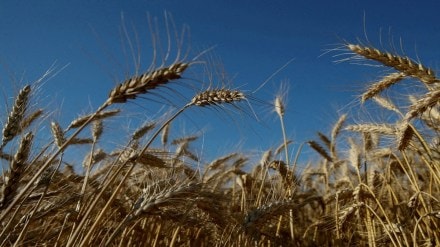A host of measures taken by the government in recent weeks to cool the prices of food items, such as reduction in import duty on edible oils, stock limits on pulses and wheat, monitoring of stocks and restricting sugar exports could have an adverse effect on trade and hit farmers incomes, analysts feel.
Imposition of stock holding limits on agricultural commodities could discourage traders from purchasing it from farmers, besides distorting the market. Such steps, agriculture economists say, should be avoided, being not in sync with free market principles.
“Putting stock limits is like strangulating markets, which is against the interest of farmers, but pro-consumer. It reflects inherent consumer bias in agricultural policies,” Ashok Gulati, agricultural economist & former chairman, Commission for Agricultural Costs and Prices (CACP), said.
Gulati said If the government feels there is likely to be a shortage of wheat or other agri-commodities in case of El Nino threat, they should have slashed import duties to 5% from current level of 40%.
In the last two weeks, the government had imposed stock holding limits on tur, urad varieties of pulses and wheat to curb hoarding and prices for wholesalers to retailers, millers and importers. While the stock-holding limits pulses and wheat is valid till October 31, 2023 and March 31, 2024 respectively.
“It’s premature to impose stock holding limits on wheat during the procurement season (April-June) as traders and stockists purchase grains keeping into consideration demand till March next year,” Dharmendra Jain, President, Uttar Pradesh Roller Flour Miller Association, said.
To curb the possibility of a spike in sugar prices in the coming festive season, the government has capped exports of sweetener at 6 MT in October-September season (2022-23) against a record 11 MT of shipment in previous season.
The government ons Thursday reduced import duty on refined soyabean and sunflower oil from 17.5% to 12.5%, a decision aimed at maintaining a balance between crude and refined oil imports. Currently effective duty on crude palm, soyabean and sunflower has been at 5.5% since September, 2022.
Meanwhile, cheaper edible oil imports has already pulled down mandi prices of soyabean and mustard which are currently ruling below the Minimum Support Price (MSP) for the first time in the last few years.
Retail inflation in mustard and refined oils including soyabean and sunflower in May, 2023 had declined by 20.3% and 24.54% respectively while inflation in oils and fat category declined by 16.1% on year.
Landed prices of crude palm, soyabean and sunflower oils at Mumbai according to the Solvent Extractors Association of India (SEA) as on June 2 has declined by 44%, 42% and 55% respectively on year which has pulled down mustard and soyabean mandi prices below MSP for the first time in the last three years.
“Unbridled imports of palmolein is resulting in collapse of edible oil prices, which is impacting marketing of mustard at peak harvest time and causing distress to farmers,” Ajay Jhunjhunwala, president, SEA, had stated in a communication to the food ministry.
India imports about 56% of the total annual edible oil consumption of around 25 MT. The share of domestic edible oil includes mustard (40%), soyabean (24%) and groundnut (7%) and others.
“The government needs to compensate farmers when gate prices crash because of its intervention like currently in the case of edible oil where domestic mandi prices of mustard and soybean are ruling below MSP because of cheaper import due to marginal duties,” Ajay Vir Jharkar, chairman, Bharat Krishak Samaj, said.
Retail inflation in tur and urad in May, 2023 was 16.78% and 4.96% respectively while inflation in pulses and product category was 6.56%.
